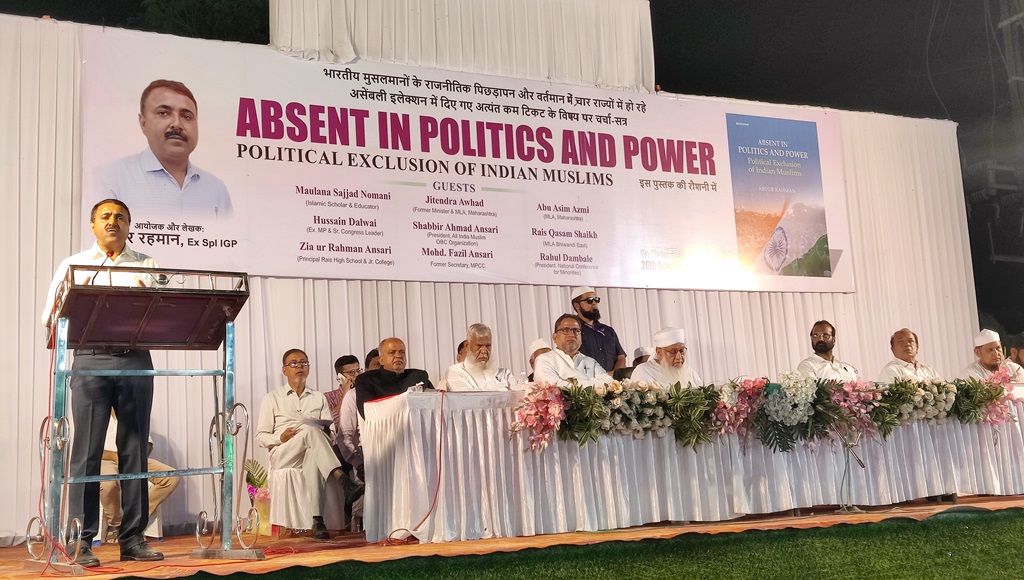Political Representation of Muslims in India and Maharashtra State Disappointing: Abdur Rahman

Bhiwandi, 27th October 2023: Despite constituting 14.2 percent of the country’s population, Muslims find their political representation at both the national and state levels disheartening, according to IPS officer Abdur Rahman, a former Special Inspector General of Police.
“While democracy grants Muslims the right to voice their demands and seek increased representation, political parties have failed to provide proportional candidatures or tickets to Muslim candidates, resulting in only half of the seats being allocated to them since the first election.”
Rahman emphasized the need for Muslim awareness and active participation in politics during a seminar held in Khandupada, Bhiwandi, centered around his book ‘Absent in Political and Power.’ The event featured Islamic Scholar and Educator Maulana Sajjad Nomani, President of All India Muslim OBC Organization Shabbir Ahmad Ansari, Adv. Yasin Momin, Adv. Kiran Channe, Mohammad Fazil Ansari, and other dignitaries.
Rahman’s book delves into the research commentary on the insufficient representation of Indian Muslims in politics. He noted that out of 17 elections held from 1952 to 2019, only half of the expected 1070 Muslim representatives contested Lok Sabha elections. Apart from RJD, mainstream political parties like BJP, Congress, NCP, and BSP have not ensured adequate political representation for Muslims.
Highlighting the situation in Maharashtra, Rahman pointed out that, despite an 11 percent Muslim population, only one Muslim candidate has been fielded in the last four to five Lok Sabha elections. Muslim-majority constituencies like Dhule, Malegaon, Bhiwandi, Akola, Aurangabad, and Nanded often lack Muslim representation. Rahman expressed concern over the absence of development in Muslim-dominated areas like Malegaon and Bhiwandi, despite the latter being hailed as the ‘Manchester of India’s textile industry.’
Rahman raised issues such as discriminatory laws and increasing incidents of mob lynching against Muslims. He called for greater political awareness among Muslim communities, urging them to question those they vote for. Rahman encouraged active political involvement, emphasizing that while politics itself is not inherently bad, the individuals within it may be. He concluded by urging Muslim citizens to encourage their children to participate in politics and exercise their voting rights to make a meaningful impact.
The event concluded with the singing of the National Anthem.








